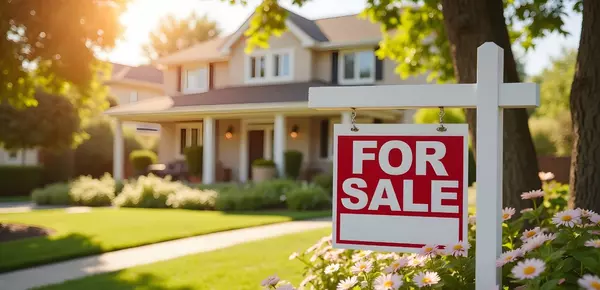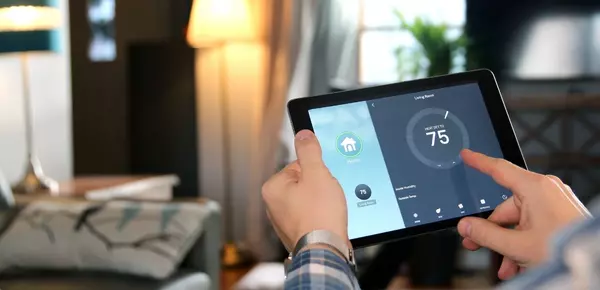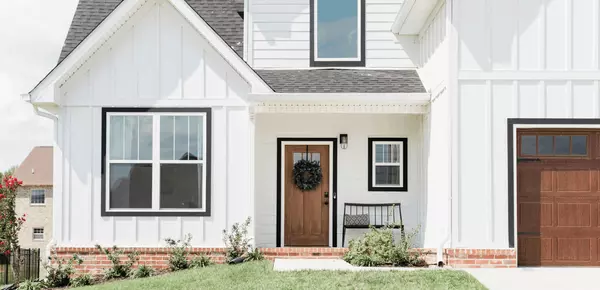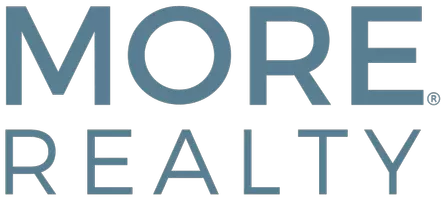Future of Real Estate: How Smart Homes Impact Value

As the world of real estate continues to evolve, smart home technology has become a significant game-changer, influencing property values and buyer preferences. From increased security to energy savings, smart homes are making a mark on the market. Here's how smart home features impact property values and what homeowners and sellers can do to maximize their returns in this rapidly growing trend.
The Rise of Smart Home Technology in Real Estate
Smart home technology has evolved from a luxury feature to a standard expectation for many homebuyers. Today, buyers are actively seeking homes equipped with smart features that enhance convenience, efficiency, and security. Some of the most in-demand smart technologies include:
-
Smart security systems (cameras, motion sensors, smart locks)
-
Energy-efficient smart thermostats
-
Automated lighting and shading systems
-
Voice-controlled assistants (e.g., Amazon Alexa, Google Home)
-
Integrated entertainment systems
-
Smart appliances (refrigerators, washing machines, ovens with AI capabilities)
These technologies not only provide comfort and ease but also appeal to buyers seeking homes that fit modern lifestyles.
How Smart Homes Impact Property Value
-
Increased Market Appeal and Faster Sales
Homes with smart home features are catching the eye of buyers, often selling faster than traditional homes. The ability to control lighting, climate, and security from a smartphone or voice command appeals to modern buyers who value convenience. This increased market appeal can help your property stand out in a competitive market. -
Higher Resale Value
Studies show that homes with smart technologies tend to sell for a premium compared to traditional homes. Smart security systems, energy-efficient devices, and integrated home automation are particularly valuable, offering strong returns on investment. Buyers are willing to pay more for homes that save them time, money, and energy in the long run. -
Energy Efficiency and Cost Savings
Smart thermostats, energy-efficient lighting, and automated climate controls help reduce energy consumption, saving homeowners money on utility bills. With more buyers becoming eco-conscious, energy-efficient smart homes are highly desirable, and this can significantly boost property value. -
Enhanced Security and Peace of Mind
Security is a top priority for many buyers. Smart locks, video doorbells, and remote surveillance systems provide real-time monitoring, ensuring homeowners' peace of mind. This added layer of security makes properties equipped with smart technology more attractive, particularly for those prioritizing safety. -
Future-Proofing Properties
Smart homes are better equipped to adapt to future technological advancements. Homes with modern smart features are more future-proof, which is appealing to tech-savvy buyers. These homes are ready for the next wave of innovation, ensuring long-term value.
Key Considerations for Homeowners and Sellers
-
Invest in High-Impact Smart Features
Not all smart technologies will have the same impact on property value. Homeowners looking to enhance their property’s appeal should focus on high-demand features like smart security systems, energy-efficient thermostats, and automated lighting. These features offer tangible benefits to buyers and increase marketability. -
Ensure Compatibility and Integration
A home with seamlessly integrated smart devices is more attractive to buyers. Make sure your smart home features work together, preferably through a centralized hub or app, to provide a smooth user experience. Compatibility is key to maximizing appeal. -
Highlight Smart Features in Listings
When selling a smart home, it’s essential to showcase its tech features in your property listings. Use high-quality images, detailed descriptions, and even video tours to demonstrate how the smart systems work. Highlighting these features can set your home apart from others in the market. -
Educate Buyers on Smart Home Benefits
Many buyers may not be familiar with the full potential of smart home technology. Providing information about how these features save time, money, and improve security can help potential buyers understand their value. -
Keep Software and Devices Updated
Outdated smart technology can be a turnoff for potential buyers. Ensure that your devices are up-to-date and functioning properly, as buyers will prefer homes that are move-in ready with the latest tech.
The Future of Smart Homes in Real Estate
Looking ahead, smart home technology will only become more advanced. Artificial intelligence (AI) and the Internet of Things (IoT) will further transform the way we live and interact with our homes. Future homes may include:
-
AI-powered assistants that learn and automate daily tasks
-
Smart energy grids that optimize energy usage based on real-time data
-
Predictive maintenance systems to prevent issues before they arise
-
Seamless home automation for a fully integrated living experience
As these technologies evolve, homes with advanced smart features will likely command even higher premiums, making smart home upgrades a wise investment for homeowners and investors alike.
Conclusion
Smart home technology is no longer just a trend—it’s reshaping the real estate market. Homes with smart features offer buyers convenience, security, and long-term cost savings, making them more attractive and valuable. For homeowners and sellers, investing in smart technology can increase property value and lead to faster sales. If you're looking to make the most of the real estate market, now is the time to consider upgrading your home with smart features.
Recent Posts












